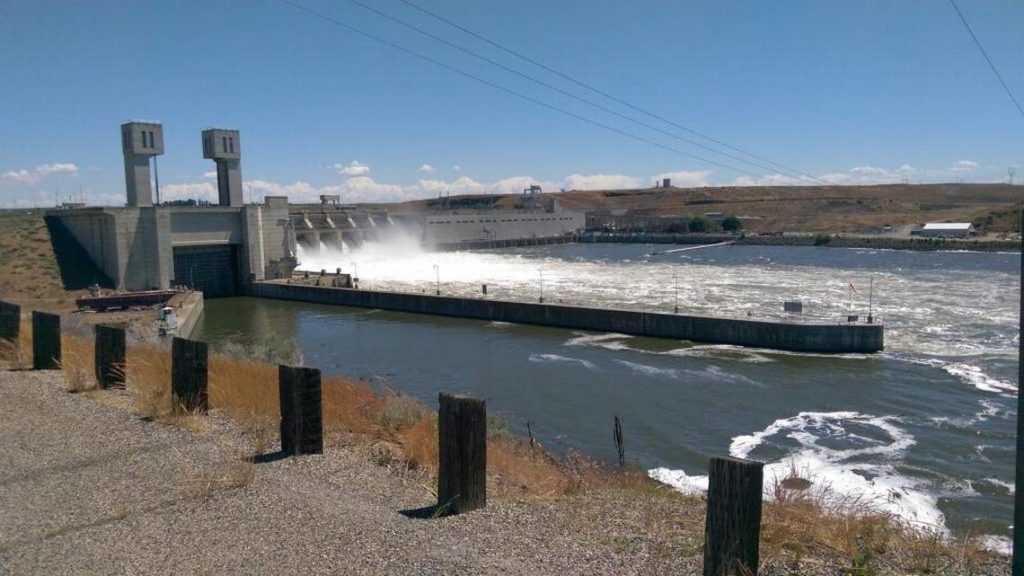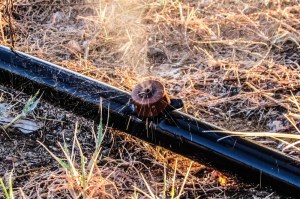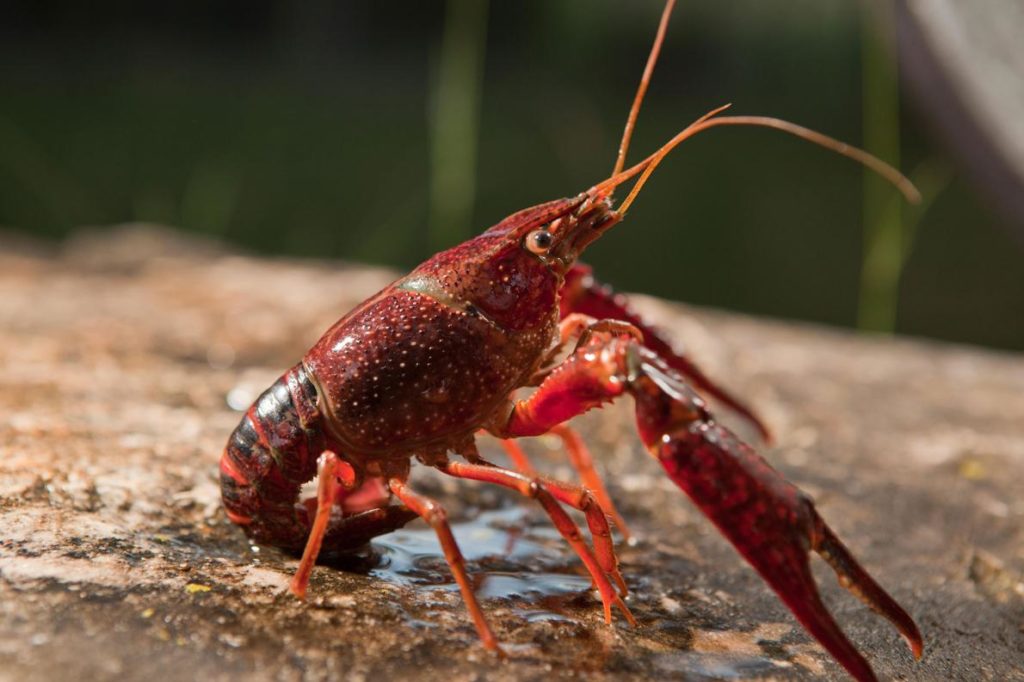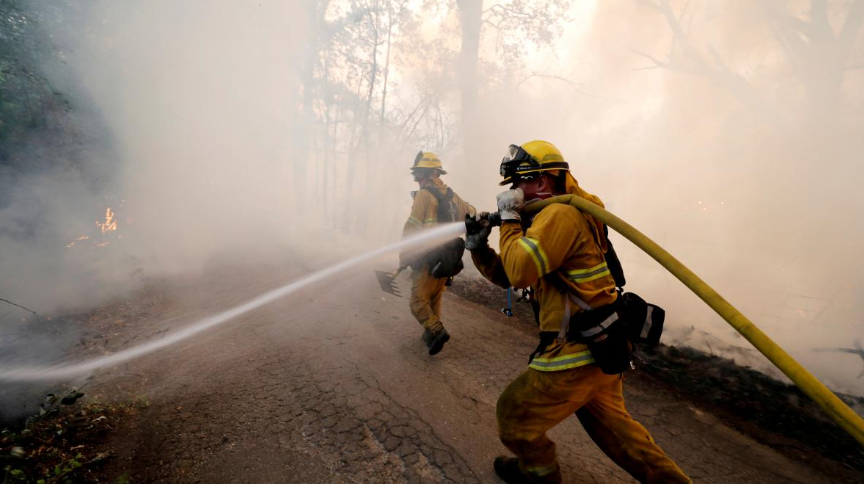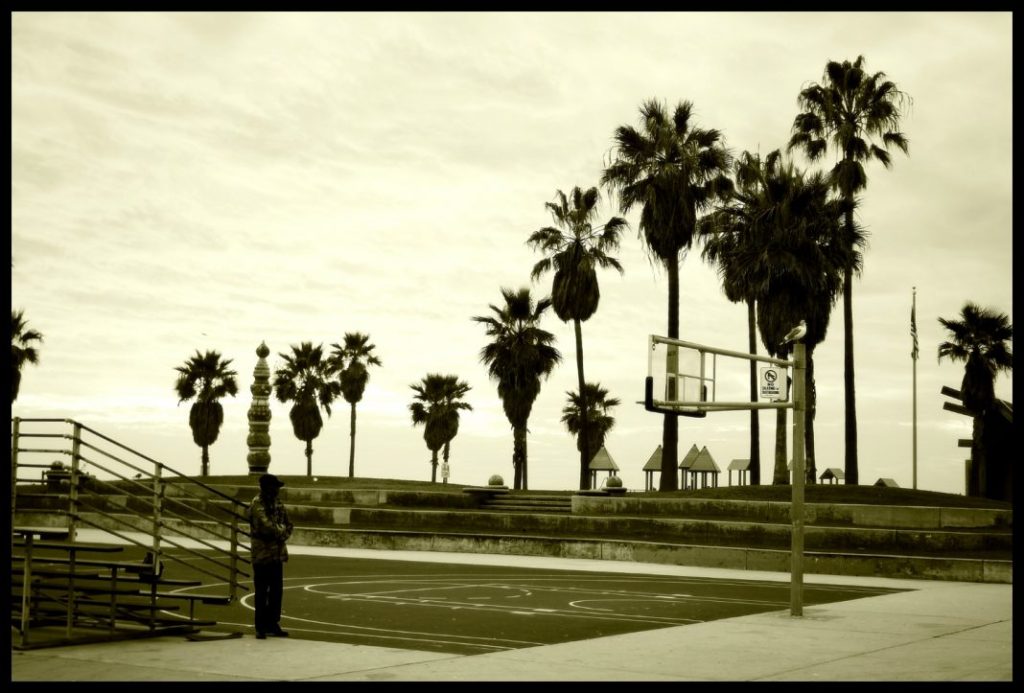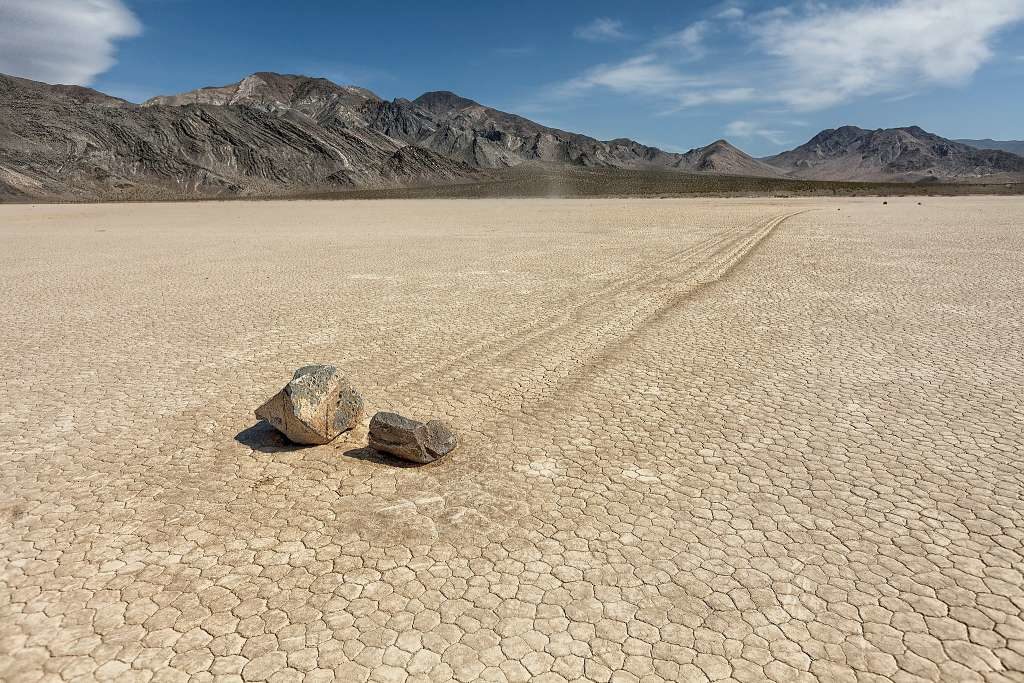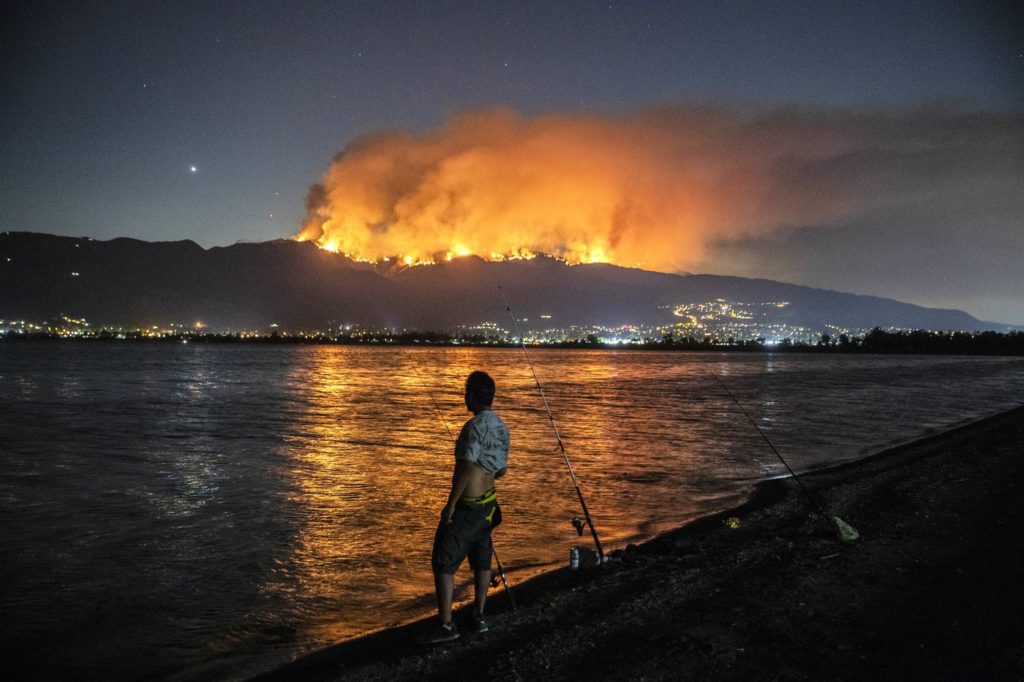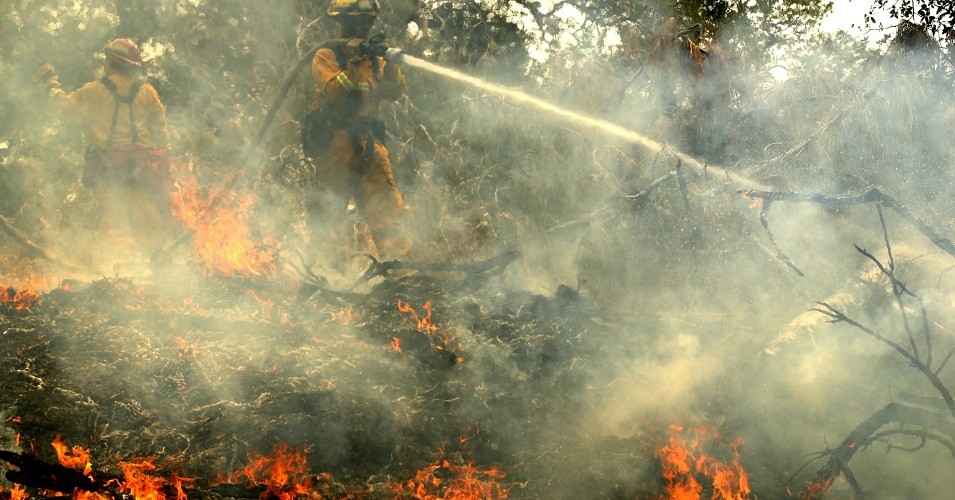IoES in the News
Headline
Snake River dams critical to irrigated ag industry
Though the Snake River dams are the most efficient and productive agricultural operations, there are disputes with the dams hurting the salmon. Peter Kareiva, a well-respected conservation ecologist and worked with NOAA fisheries views salmon recovery and dam removal as entirely different things. The opposition's objective is dam removal, not fish recovery.
Headline
Study: Efficient Irrigation Methods Increase Water Usage
It is thought that the efficient irrigation is actually using more water. Stephanie Pincetl said that it cannot all be blamed on efficient irrigation. California’s flood control policies contributed to decreased groundwater levels because they “essentially eliminate” winter flooding that used to recharge ground water. “There are confounding factors, and efficient farming is one piece of the problem.”
Headline
The Global Potato: Food Futures of the Past
Published as part of an environmental storytelling partnership with UCLA's Laboratory for Environmental Narrative Strategies (LENS), with extensive contributions from faculty and MFA students in UCLA’s documentary film program in the School of Theater, Film and Television. The third storyline explores current innovations and visions for ecological, equitable food systems, specifically on the global potato timeline.
Headline
While the planet burns, our politicians fiddle
“We are living in a world that is not just warmer than it used to be,” Daniel Swain, a climate scientist at UCLA, told The New York Times. “We haven’t reached a new normal. This isn’t a plateau.” Climate change is contributing to burning areas all around the world and hurting the local people. Though globally, this year has been the worst heat wave and fire season, we are seeing backward action from politicians, only increasing their support for high carbon emitting industries.
Headline
The Trump Administration Just Dropped Its Pro-Coal Alternative to Obama’s Clean Power Plan
The Trump administration released new proposal – Affordable Clean Energy rule. It is a lifeline for coal and does not include pollution goals. The EPA stated that the rule would increase pollution and put public health at risk, especially low income communities. UCLA law professor Cara Horowitz notes any arguments the administration makes in court defending the rule “will be made against the backdrop of EPA’s own determination that carbon dioxide pollution is a danger to public health.”
Headline
World-Renowned Scientists: California Must Operate on 100 Percent Clean Electricity
With the multiple extreme weather events, 37 world-renowned scientists including UCLA's Alex Hall came together and signed a letter urging the state legislators to sign Bill 100 - 100 Percent Clean Energy Act of 2018, setting the goal that all of California’s electricity come from carbon-free resources by 2045.
Headline
Surprising Link Discovered Between Bottom Feeders and Blood Suckers
UCLA research scientist and lead author on the new study, Gary Bucciarelli, found that the invasive crayfish in the Santa Monica Mountains streams is linked to growing mosquito population. They disrupt the ecosystem, scare off mosquito larvae predator, dragonflies, and put people at higher risk of disease.
Headline
NOAA: Rest of West’s fire season likely to remain hotter than normal
The West US has been experiencing unusually large wildfires, reaching the largest in California history with the Mendocino fire, outside of the fire season. The hot temperatures and wildfires are expected to continue through the fire season of September and October. Three leading climate and fire scientists, including UCLA's Daniel Swain, state climate change as a threat multiplier, extending the fire season and contributing to the large record breaking fires.
Headline
Lessons sought on warnings, evacuations from savage Redding fire
LA Times' Joseph Serna goes into detailed what happened with the Carr Fire from fire movement and growth to evacuations and casualties. The city was devastated by the unpredictability and strength of the fire. Now, California needs to update their knowledge on fire behavior and how to efficiently warn and evacuate people for when a big natural disaster repeats.
Headline
L.A. Used to Have Discernible Seasons—I Swear
“I remember when you could wear a coat here,” we’ll say to children who know nothing beyond T-shirts and shorts. “I remember when we had seasons, before all of this was summer.” – @LAmag's @lizohanesian
Headline
The summer’s weather provides evidence of climate change
The National Oceanic and Atmospheric Administration reports that 3,092 record daily high temperatures, 159 monthly heat records and 55 all-time highs were set during July worldwide. “We’re now seeing decades-old scientific predictions being validated in the real world, right before our eyes,” says Daniel Swain, UCLA climate researcher.
Headline
Heredity Podcast: August 2018
Listen to Nature Heredity August 2018 podcast, featuring UCLA's Brad Shaffer and Dr. Evan McCartney-Melstad. They spoke on their application of genomic methods to studying and potential conservation of a Californian frog – a candidate for listing of federal and state endangered species act.
Headline
California firefighter was trapped, killed by 1,000-foot-wide fire tornado
“Depending on the final number, this might actually be the strongest ‘tornado’ in California history, even if it wasn’t formally a tornado,” said UCLA climate scientist Daniel Swain. The Carr Fire fire tornado reached over 165 mph and trapped and took a firefighter's life.
Headline
81-degree reading likely sets record for highest temperature ever measured in California waters
Two buoys off the coast of San Diego recorded the highest sea-surface temperature ever measured in California waters – 81.3 degrees. Many scientists are astonished by the measurements, including UCLA's Daniel Swain.
Headline
In California’s Lake County, fire is a tired new normal
Lake County in California is prone to lighting up in flames. The county has experienced a few wildfires in the last decade and the largest wildfire this year. “It’s sort of this middle elevation, where you’re above the marine layer, but you’re not high enough in the mountains to really cool down either,” UCLA climate scientist Daniel Swain said. Residents are seeing the trend and moving away before the next one hits.
Headline
How Do We Measure Future Snow Cover?
There are multiple ways to measure snow cover, including field monitoring, remote sensing, and hydrological modeling. UCLA's Chunyu Dong explains that the best way to measure is to combine all methods. Each method that their own hole in data, and together make a more complete and accurate picture.
Headline
Lowering Fuel Economy Standards Not As Easy As Trump Thought
Cara Horowitz, co-director of the Emmett Institute on Climate Change and the Environment at the UCLA School of Law, explained that the Trump administration "is going to have to justify to a court why it's changing its position because the rule was put in place after a robust administrative process and record. It's often harder to justify a changing of a position than the taking of a position because you have to overcome the presumption that the rule was right in the first place."
Headline
Trump CAFE proposal faces legal thicket
Trump administration's proposal is to freeze average fuel economy target at the 2020 level of 37 mpg. The government "is going to have to justify to a court why it's changing its position, because the rule was put in place after a robust administrative process and record" showed its benefits, said Cara Horowitz, co-director of the Emmett Institute on Climate Change and the Environment at the UCLA School of law.
Headline
Zinke takes forestry fight to fire-ravaged California
Interior Secretary Ryan Zinke looks to push active forest management in California. The push is coming at a time where California is burning with multiple wildfires and the House is trying to pass a farm bill that includes logging without environmental review. Environmentalists are fighting the idea of logging, however, Glen MacDonald a professor of geography at UCLA says that the argued benefits of logging are complicated and don’t always fall along party lines.
Headline
Steve Lopez: Ignore the climate change deniers. California’s hellish summer really is a grave warning
LA Times' Steve Lopez surveyed and found that many either deny that climate change is real or believe it is but not much can be done to change the circumstances. However, he believes this year's summer is the warning that people should be paying attention to. He includes UCLA's Alex Hall and ask can California have any impact on reversing climate change. Hall has no doubt, California is setting the pathway for change and adaptation.
Headline
Orange County homeless couple’s journey, firefighting technology is changing, UCI cannabis research
Invasive crayfish in Santa Monica Mountains are putting us at risk of disease. Gary Bucciarelli joins A Martinez on KPCC's Take Two (35:57) to speak on the UCLA published research on the invasive crayfish – how they reached the SMM, hurting the area's ecosystem and food chain, and increasing mosquito communities.
Headline
Worse Scorching Summers Loom If Global Warming Continues Unchecked
Summer 2018 has been the warmest in many countries' history and is the warning needed to take action against climate change. The explosive wildfires across the globe have devastated many communities. The high temperature and wildfires are closely linked to global warming, said Yifang Zhu, a professor of environmental health sciences at UCLA. The wildfires in western United States were predictable against the backdrop of the ongoing climate change.
Headline
Why are California’s wildfires so intense and what can be done?
We are experiencing one of the worst fire seasons in California history. Will things get better? “We’re having peak fire season conditions in the off-peak time of year, and there’s no real indication that things are going to get better before the peak of the season in the fall,” says Daniel Swain, a University of California, Los Angeles climate scientist and leading expert on climate whiplash.
Headline
‘Repugnant and Dangerous’: Ignoring Role of Climate Crisis, Trump Offers Buffoonery on California Wildfires
People are enraged by Trump's tweet about California's inability to fight fires due to environmental laws. He includes points that help his favored industries like logging and leaves out that it is due to climate crisis. UCLA's Alex Hall statement was featured to tell the reason for the big fire conditions.
Headline
Mendocino fire explodes to second-largest in California history
The Mendocino fire exploded and jumped up the ranks to number two largest fire in California history in just a few days. It formed from two fires, River and Ranch fires. UCLA's Daniel Swain said the destructive fires are due to both human made climate change and sprawling housing.

